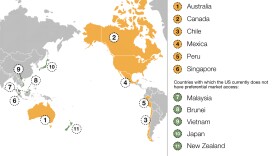By Michael Cohen
http://stream.publicbroadcasting.net/production/mp3/wkms/local-wkms-804660.mp3
Murray, KY – If you're looking for a good mystery novel to curl up with by the fire this holiday season, commentator Michael Cohen suggests you take a stab at Patricia Moyes' novel Season of Snows and Sins. This uncommon mystery for the holidays takes place in the Swiss Alps during a Christmas vacation - gone wrong.
The title Season of Snows and Sins comes from a poem by Algernon Swinburne, who didn't like winter. It's an ingeniously-told story that uses multiple narrators, a technique that goes back to the very first English detective novel, Wilkie Collins's The Moonstone. The first narrator is Jane Weston, a recently widowed sculptor living in a rustic chalet in the Swiss Alps. Jane befriends a local orphan girl, Anne-Marie Durey, and as much as arranges the girl's marriage to a young ski instructor named Robert Drivaz by wangling live-in jobs for the couple at the apartment house next door.
All seems well until the neighborhood celebrity, a Parisian film actress named Giselle Arnay, starts keeping company with Robert. Convinced that she loves him, he goes to Paris to try to connect with her, fails, returns, drinks, loses his job, and possibly abuses Anne-Marie. One April day he is murdered in his own kitchen. Anne-Marie is wrongly convicted of the crime, largely because of the evidence of Jane, who says she saw Anne-Marie returning from work to her apartment at the time of the murder.
Jane tells this much of the story, and then the narrative shifts to her friend Emmy, wife of a Scotland Yard inspector. Jane has invited the inspector and his wife to spend Christmas vacation with her. The narrative shift allows us to get another view and to see Jane herself as a suspect. Yet another shift in narrator puts us in the house of the film actress in a scene where she confronts all of her guests in turn with the possibility that each might have been the killer. This classic summary of the suspects is a tried-and-true mystery device that wouldn't have been possible without the shift of narrators.
The Scotland Yard detective is Henry Tibbett, who eventually solves the case and clears Anne-Marie's name. Season of Snows and Sins was published in 1971, and is the eleventh book about Henry Tibbett in a series of twenty that Patricia Moyes wrote before she died in 2000. She was an interesting woman who also did some film work with Peter Ustinov and, in 1960, wrote a screenplay based on Stephen Potter's One Upmanship books, the movie was called School for Scoundrels. If you like Season of Snows and Sins, there're lots more Moyes books to choose from, including a collection of her short stories that has several Christmas season tales and is called Who Killed Father Christmas? Merry Christmas, mystery lovers.




